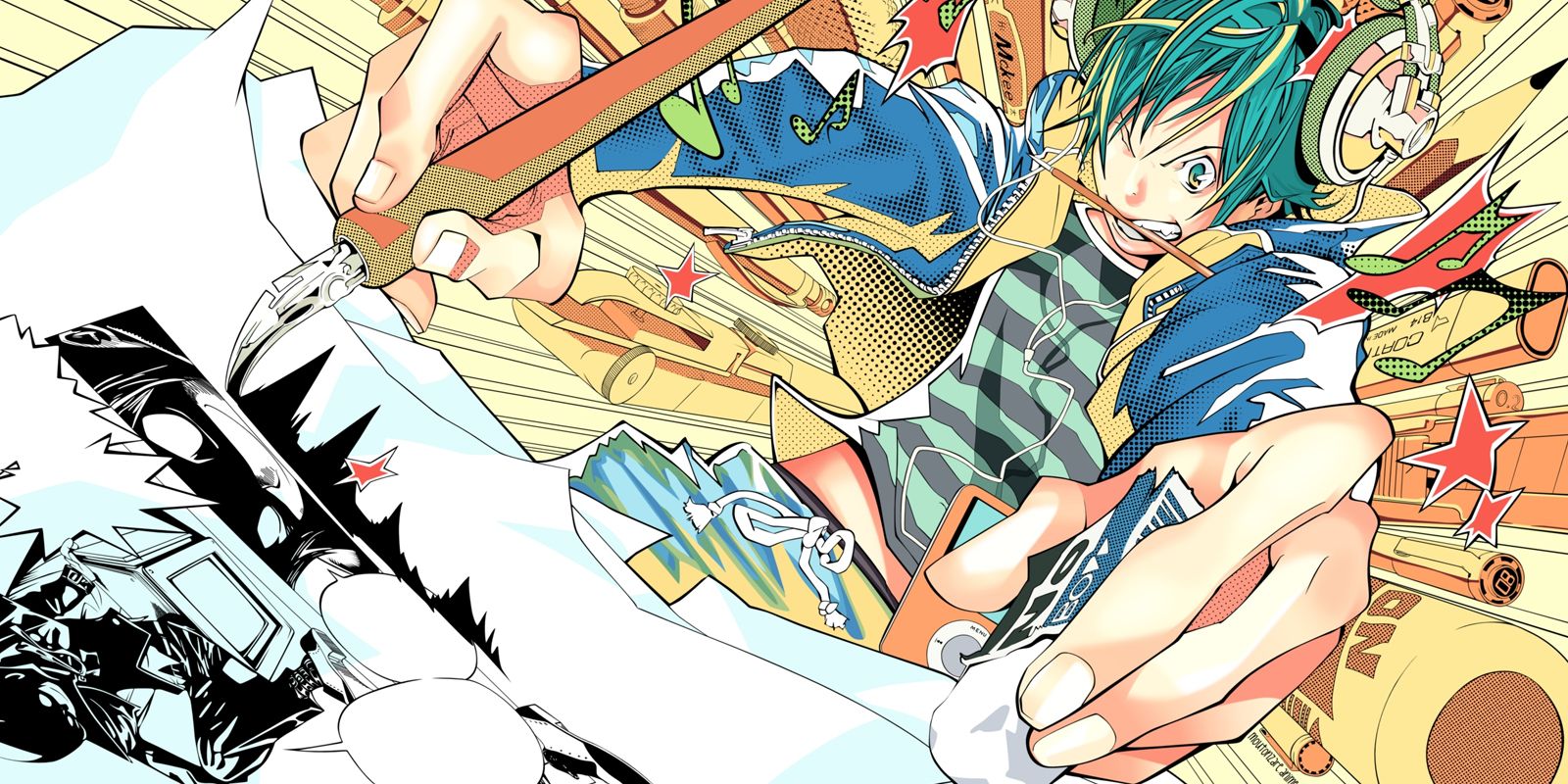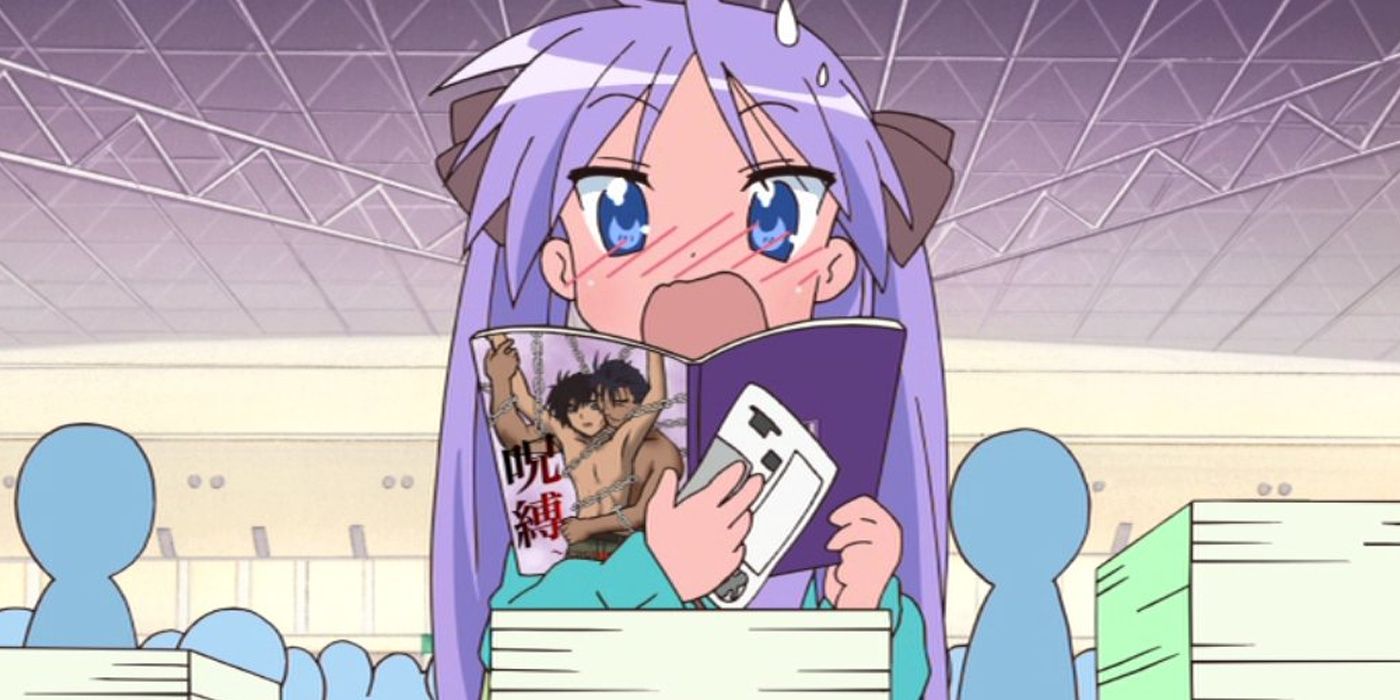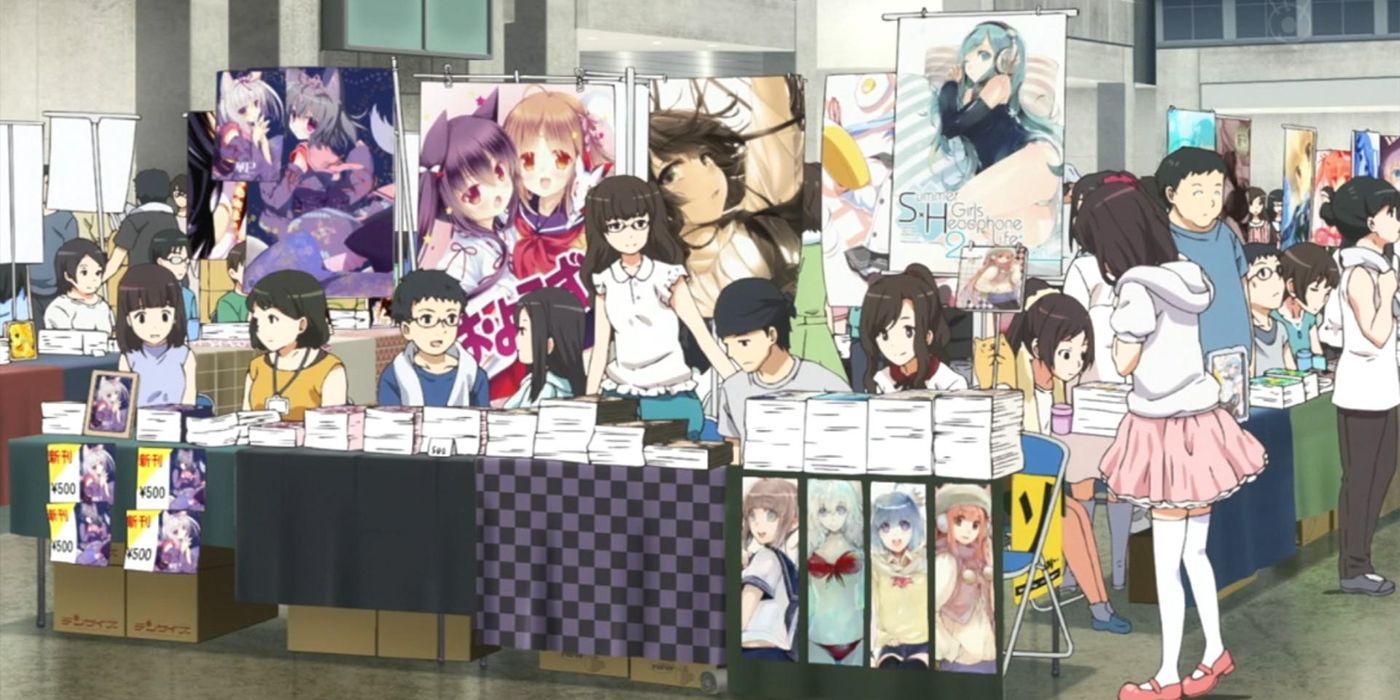If you're a fan of anime or manga, you've likely heard of doujinshi. These amateur, self-published works are hugely popular among consumers and creatives alike, these days forming an essential part of the manga industry. Doujinshi are often fan fiction -- transformative works of an existing series. This makes their existence (and prominence) unique, as commercializing doujinshi in other countries would aggravate vicious copyright laws. In Japan, they are generally allowed to exist outside legal constraints. Instead of being condemned, doujinshi are celebrated, encouraged and even endorsed by the Prime Minister himself. Here's how they got to where they are today.
Defining Doujinshi
It helps to understand the word's etymology. The word "doujin" (同人) is often used as shorthand for doujinshi. It means "same person", and can refer to a group of people with shared interests. This is paired with "shi" (誌), short for "zasshi" (雑誌), the Japanese word for magazine or journal. Together, they make "doujinshi" (同人誌), a self-published magazine catering to a specific group of people. Doujinshi don't have to be transformative, and can actually be entirely original works. Original doujinshi are called ichiji sousaku (次創作). Outside Japan, the word is mostly used to describe transformative works that use the creative property of other series. Transformative doujinshi are called niji sousaku (次創作).
Doujinshi are not a recent phenomenon. Their history dates back to the Meiji era, where aspiring artists would self-publish their novels and poems, often in a magazine format. These were ichiji sousaku -- original works. As anime and manga became a thing, transformative niji soukasu doujinshi became more popular. People began selling fan-made work derived from their favorite anime and manga, exploring alternate realities, romantic pairings or combining the characters from different series. The possibilities are endless. More recently, there has been a burst of doujin soft (同人ソフト) or doujin games. These are fan-made video games, often focusing on existing anime or manga series.
These days, you'll often hear "doujinshi" in reference to the yaoi or BL (Boys' Love) genre, which is notorious for its endless doujin library. Pornographic doujinshi are also very popular, and it's safe to say that the majority of pornographic manga are doujinshi.
Some of the most notable doujinshi come from Gainax and CLAMP, two famous studios that have their roots in doujin. Gainax, the animation studio behind such classics like Neon Genesis Evangelion, started off as a college club creating Gundam doujinshi. The girls at CLAMP, who would go onto create Cardcaptor Sakura and other huge series, started as a twelve-woman doujin circle called CLAMP Cluster, making a bunch of Jojo's Bizarre Adventure yaoi fanfiction. Their most notorious work includes the character Kakyoin laying an egg. It's certainly odd, but that oddity is the beauty of doujinshi.
The Doujinshi Ecosystem
Doujinshi is an important part of the manga. In fact, publishers will scout doujin artists hoping to start a professional career. This gives new, talented artists an entry-point into an industry that would otherwise be quite tough to crack. The doujinshi ecosystem is enabled by conventions and other doujinshi events where magazines can be sold and artists can be scouted. The most well-known doujinshi convention is Comiket, founded in 1975. Comiket was a grassroots event that contributed immensely to the growth of doujinshi, allowing for interaction between doujin artists, publishers and eager readers. It would inspire similar conventions, many of which are ongoing.
Obviously, doujinshi are everywhere on the internet. Digitization has assisted doujin sales, but also strengthened doujin piracy, an ongoing problem for artists looking to profit off their work.
As it is, the doujinshi business wouldn't fly outside of Japan. Other countries' more militant copyright laws would not tolerate the sale of fan-comics based on copyrighted property -- selling a fan-work of your favorite Marvel Comics character, for instance, isn't safe if you don't want to be sued. Luckily, the Japanese see it differently; instead of viewing doujinshi as a threat to original works, they're generally considered healthy, promotional and celebratory. Recently, Shinzo Abe (the literal Prime Minister of Japan) came out in support. Defending doujinshi from the copyright laws of the Trans-Pacific Partnership, he argued that doujinshi do not exist in the same market as the works they take from, and they should be viewed less as theft and more as parody. Doujinshi is also aided by the fact that, culturally, the Japanese are less likely to litigate.
Many famous creators and studios that have their beginnings in doujins, so doujinshi is considered more or less a legitimate career path. The aforementioned Gainax and CLAMP are two of the biggest examples, but there is also Kazuhiko Kato (aka Monkey Punch, creator of Lupin III) who was scouted by Futabasha while working from a doujinshi group, Yoshitoshi Abe (one of the minds behind Serial Experiments Lain), who went onto have his original doujinshi adapted into an anime, and Chica Umino (award-winning mangaka behind March Comes in Like a Lion and Honey and Clover), who honed her skills selling Slam Dunk doujinshi at Comiket. The list goes on.
Doujinshi aren't completely above the law. As long there are small artists operating in a legally grey arena, there will be those attempting to exploit them. An article by Tofugu discusses the notorious JASRAC (Japanese Society for Rights of Authors, Composers and Publishers) threatening the ability of artists to sell doujinshi without ramifications. There's also the pesky Trans-Pacific Partnership (the one Shinzo Abe was arguing against), which could force foreign copyright laws onto the Japanese landscape. Overall, though, this uniquely Japanese market remains protected and celebrated. It's no understatement to call doujinshi the lifeblood of the manga industry, so readers can only hope they prosper into the future.



